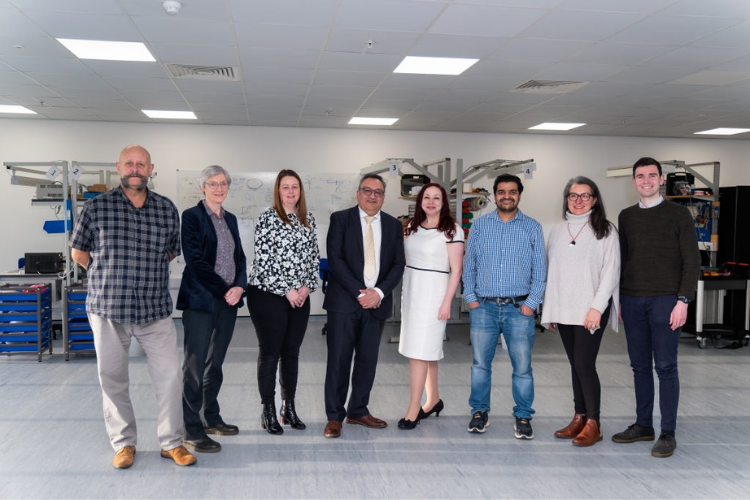More than one in four people with type 1 diabetes experience dangerously low blood sugar levels at least once every three days, a survey published to mark World Diabetes Day has found.
According to the ‘Living with Diabetes Survey 2023’ report compiled by Afon Technology, 28% of the 305 people with type 1 diabetes surveyed had 10 or more episodes of hypoglycaemia every month.
A total of 599 people with both type 1 and 2 diabetes took part in the questionnaire, which highlighted that 61.5% of the participants use a continuous glucose monitor (CGM) or flash technology to monitor their blood glucose levels.

The findings have identified that some people do not use a CGM because they are too expensive, painful, not available in their country and can be inaccurate. In addition, some individuals are not using a CGM because they are waiting to access a non-invasive device.
Sabih Chaudhry, CEO for Afon Technology, said:
“Today we unveil a critical insight from our recent survey, revealing 27.9% of people with type 1 diabetes experience at least one hypoglycaemic episode every week at least once every three days. This is alarming and a clear signal that we need to revolutionise diabetes management.”
If left untreated, severe cases of hypoglycaemia – when blood sugar levels fall below 4mmol/L – can be dangerous. Symptoms of a hypo include feeling hungry, dizzy, weak and confused, as well as shaking, sweating, tingling lips and blurred vision.
According to Diabetes UK, a mild hypo can be treated through eating or drinking 15 to 20 grams of fast acting carbohydrates such as glucose tablets, sweets, sugary fizzy drinks or fruit juice.

Some people with diabetes may also need to take 15 to 20 grams of slower acting carbohydrates if the next meal is not due, the charity has reported.
Scientists at the Monmouthshire-based tech firm are creating the world's first non-invasive wearable blood glucose sensor, which is tipped to completely transform the lives of those with diabetes by completely removing needles from the process of monitoring blood sugar levels.
The sensor sits on the inside of your wrist and uses Bluetooth technology to send real-time information to a companion app which will display your blood glucose trends and alert you to high/low glucose levels as well as personal health trends.
Sabih added:
“At Afon Technology, we believe in the transformative power of continuous glucose monitoring. Our mission is to change the lives of those with diabetes, and we are on the cusp of making needles a relic of the past in blood sugar monitoring. By detecting low sugar levels swiftly and accurately, we hope to turn the tide against hypos and offer a brighter, needle-free future for people managing diabetes.”
Non-invasive blood glucose monitoring is the ‘holy grail’ in the world of diabetes and as of yet no one has been able to crack it.
Currently, there are 537 million adults globally living with diabetes. Evidence has shown that the NHS spends £10 billion per year on diabetes, with NHS Wales spending £500 million each year on the condition.
Unlike the current continuous glucose monitoring devices, Afon Technology’s sensor will measure blood glucose levels in real-time without the need to penetrate the skin at all, making it easier to manage the condition, reducing the risk of diabetes-related complications such as heart attack, stroke, blindness, kidney failure and limb amputations.
Companies such as Apple, Samsung and Google are rumoured to have been trying to develop non-invasive blood glucose monitoring, but so far none have been successful. Afon Technology hopes to win the race to this important milestone.
Preliminary clinical research gives people with diabetes hope that such a device could become a reality in the near future.
World Diabetes Day is the primary global awareness campaign focusing on diabetes mellitus and is held on 14 November each year.











